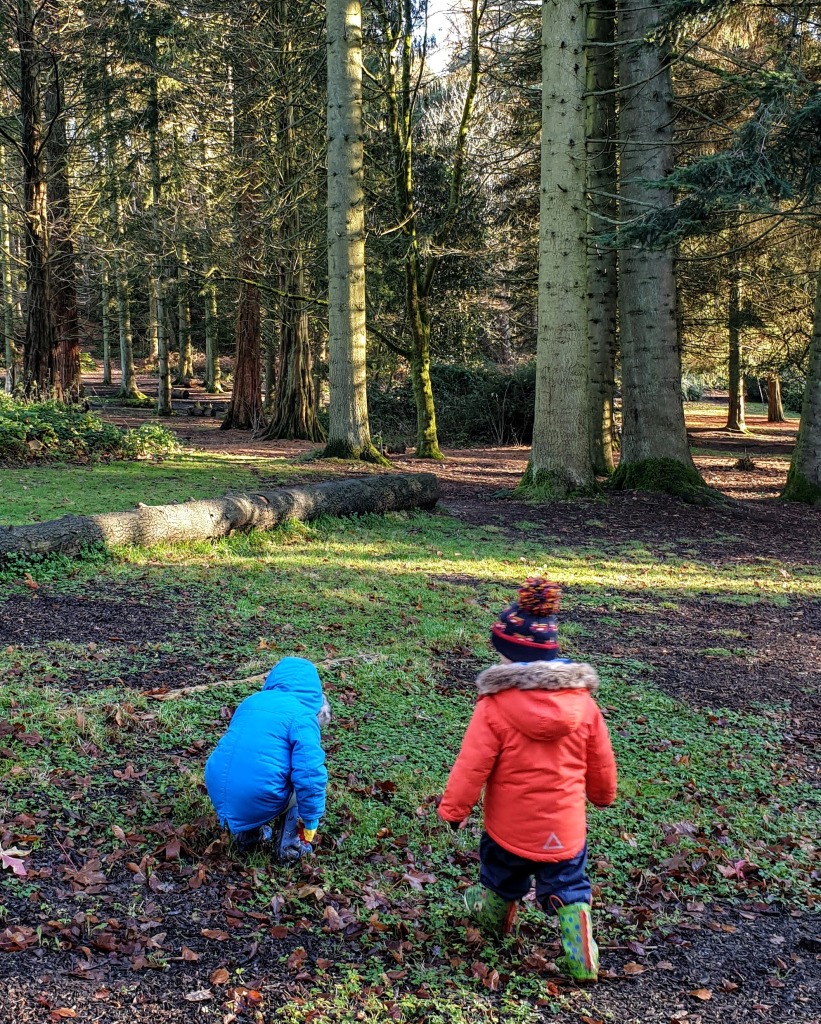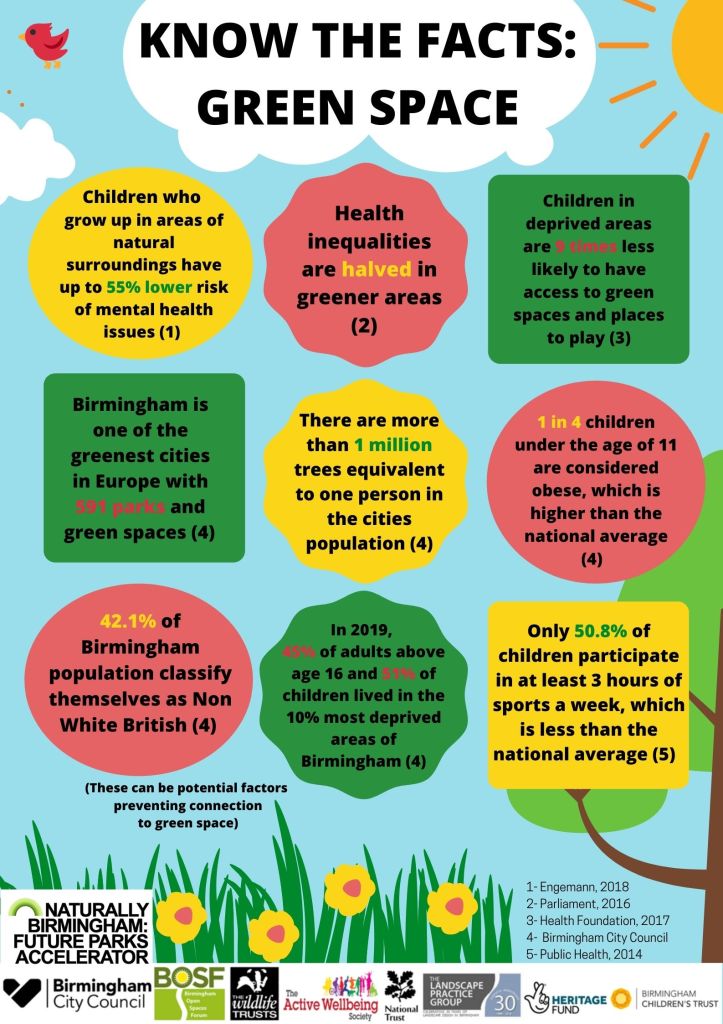
‘Know the facts: Green Space’ is a poster designed to promote the importance of children’s access to green space for development and wellbeing. Yet also highlighting some of the barriers to this.

Research has shown engagement with green space falls as a result of factors such as lower economic class and ethnicity. Birmingham is faced with varying levels of deprivation across the city as a whole, and is very ethnically diverse; both of which may be preventing groups engaging with green space. It is important to highlight these inequalities within the city so that we can recognise where the barriers lie and work towards overcoming these challenges. Deprived areas are shown to have less well-kept green spaces, discouraging use. As well as ethnic minority groups feeling they are unable to turn to green spaces due to fear of judgement. We want to break down these barriers and show that everyone has the right to access green space no matter whom they are, or where they are from.
Childhood development and wellbeing has also been shown to have strong correlations to green space. Children who grow up in areas of green space are less likely to face health issues in the future such as diabetes, obesity and depression. Obesity levels for children under the age of 11 in Birmingham are higher than the national average, with children participating in less hours of sports each week. Engagement with green spaces from the youngest age is vital to aid developmental growth in children, promoting education and growth through the senses. We all know children love to get outdoors and play around in the mud. We want to promote such activities as the benefits of green space span far and wide, from mental health benefits to physical health improvements.
Keep an eye out on our social media pages for our upcoming ‘The Very Hungry Caterpillar’ nature trail in one of the local parks in Birmingham this Easter holiday. This is a great opportunity to promote and educate children about biodiversity, wildlife and maths just to name a few. The trail aims to encourage all groups of people no matter the background, to come to the green spaces and have some fun with their children. Of which will have long term benefits for wellbeing, fitness and even education. Who thought maths could be fun?